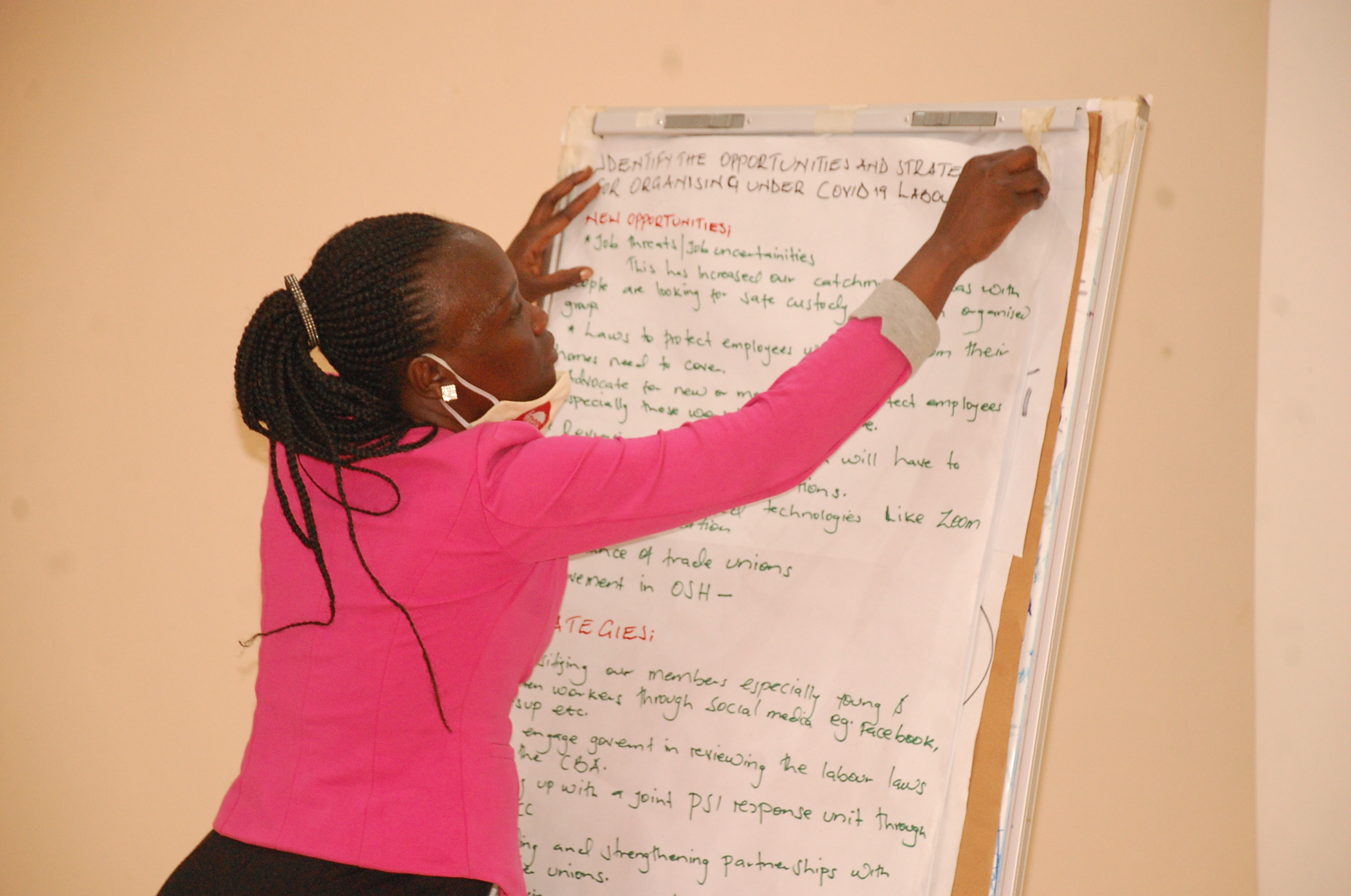-
Tags (10)
- Uganda
- Uganda Public Employees Union
- Uganda Electricity and Allied Workers' Union
- National Union of Educational Institutions
- Africa & Arab Countries
- Quality Public Services
- Organising & Growth
- National Union of Government & Allied Workers
- Uganda Local Government Workers' Union
- Uganda Medical Workers' Union
Quality Public Services in East Africa National Strategic Organising Meeting in Uganda

PSI affiliates in Uganda held a workshop, on 22 and 23 April in Kampala, that focused on how to strategically organise workers under the PSI project “Organising workers for trade union unity of action, density and quality public services in East Africa” sponsored by Union to Union.
- Read this in:
- en

Everline Aketch
Several challenges were discussed in relation to the Covid-19 outbreak, including movement restrictions that greatly hampered the recruitment process of new members. It was also observed that many organisations, some government parastatals, had to suspend the implementation and negotiation of a new collective bargaining agreement. In terms of the effect on gender, domestic violence was reported as increasing as well as care work. This was validated by the Uganda Police Report on gender-based violence released in April 2021.
One of the members of the participating unions, shared her experience on Covid-19 and urged all members to take the precautions against contracting Covid-19. Being in key sectors that are considered as frontline and essential services, members were strongly encouraged to go for vaccination against Covid-19. On a positive note, the pandemic showed how important and critical the role public services had in cushioning the effects of the pandemic in any country.

Key issues that arose in terms of strategic organising included how to deal with remote work. Many workers are working remotely and reaching out to members and organising from their homes. Unlike in the workplace, this can pose challenges unless clear strategies are adopted. In addition, the Government of Uganda is in the process of merging 188 Government agencies, approximately 9000 employees could lose their jobs. This would be a big blow on workers. The unions also faulted the merger process as the unions were deliberately excluded from the process. They agreed to move expeditiously and draw up a petition to the relevant government body, including Parliament, to ask for transparency in the merger process and to see if any jobs can be saved.

Furthermore, affiliates acknowledged the need to adapt to the new norm including to the use of social media and virtual platforms to reach out to members and potential members. However, challenges were observed due to expensive and unstable internet connectivity. In addition, many workers, especially in rural settings, do not have access to android phones to connect to some of the social media platforms. Unions were advised to consider where possible phone messaging, which is not contingent on internet connectivity to ensure inclusivity.
